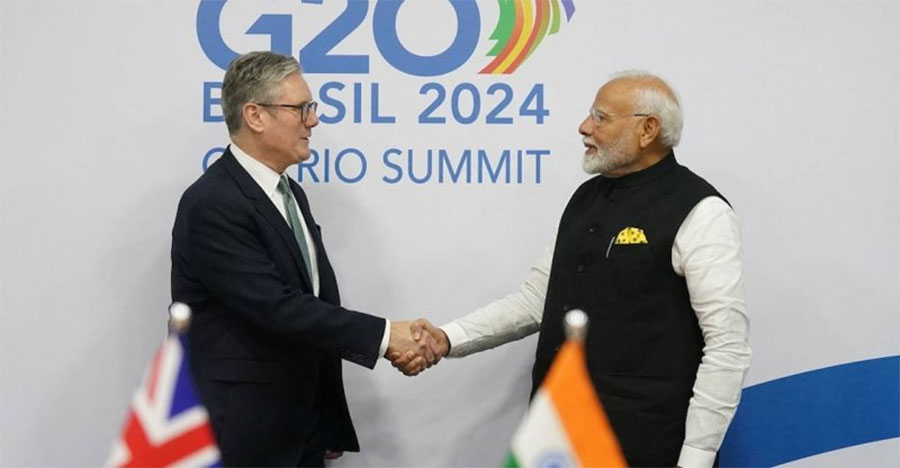
Photo Credit: Getty Images
In its most significant trade deal since leaving the European Union, the UK has agreed to a free trade agreement with India, following negotiations that were relaunched in February amid US tariff threats. Britain has been actively pursuing new trade partnerships worldwide since its departure from the EU, a need that has become even more critical after the United States implemented tariffs that risk weakening global economic growth.
"Today we have agreed a landmark deal with India -- one of the fastest growing economies in the world, which will grow the economy and deliver for British people and business," UK Prime Minister Keir Starmer said in a statement.
His Labour government added it is "the biggest and most economically significant bilateral trade deal the UK has done since leaving the EU". India's Prime Minister Narendra Modi described the deal as "ambitious and mutually" beneficial. The pact will help "catalyse trade, investment, growth, job creation, and innovation in both our economies", Modi said in a post on social media platform X.
His office said in a statement the deal will "unlock new potential for the two nations to jointly develop products and services for global markets".
The accord will slash tariffs on imports of UK goods into India, including whisky, cosmetics and medical devices.
Whisky and gin tariffs will be halved to 75 percent, while automotive tariffs will be slashed from more than 100 percent to 10 percent. In exchange, the UK will cut tariffs on imports of clothes, footwear and food products, including frozen prawns, from India. It comes after US President Donald Trump hiked tariffs on trading partners and launched sector-specific levies on steel, aluminium and cars.
The UK and India are the sixth and fifth largest global economies respectively, with a trade relationship worth around £41 billion ($54.8 billion) and investment supporting more than 600,000 jobs across both countries.
The free trade agreement is expected to increase trade between the two countries by £25.5 billion, as well as boost the British economy and wages. The UK called it "the best deal India has ever agreed".
Talks were relaunched between the two countries in February after stalling under Britain's previous Conservative administrations. In previous negotiations, India had pushed for more UK work and study visas for its citizens in exchange for lowering tariffs.
















